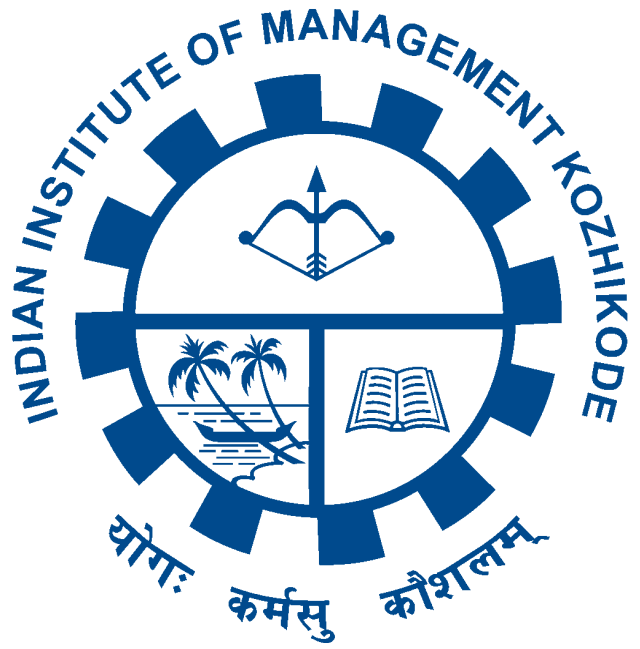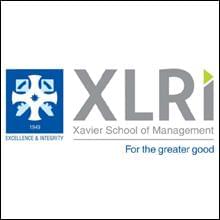Full Test
Sectional Test
Chapter Test

Shivam Yadav Educational Content Expert
Educational Content Expert | Updated On - Jul 8, 2025
The NMAT Mock test, designed by Collegedunia, is free and provides an online practice test to enhance the preparation for the NMAT 2025 exam. The NMAT Mock test follows the exam pattern and the sections of the exam, i.e, Logical Reasoning, Quantitative Skills, and Language Skills, each consisting of 36 questions, contributing to a total of 360 marks in NMAT 2025.
- The NMAT Exam is conducted for 120 minutes with a total of 108 MCQs. The NMAT Mock Test of Collegedunia provides a real-time simulation of the NMAT exam to the candidates.
- To achieve a 240+ score in NMAT 2025, it's important to have a strategic approach to mock test practice, The candidate should practice at least 5-10 full-length NMAT Mock tests during their preparation

Related Links
NMAT Mock Test 2025 Chapter-wise
The NMAT 2025 exam is divided into 3 sections, Logical Reasoning, Quantitative Skills, and Language Skills, each containing 36 questions, with a total of 108 questions, in 120 minutes. The Collegedunia provides a chapter-wise mock test series and sample question paper.
As per the previous NMAT exam,
- Language Skills: Approximately 50% of questions are expected from reading comprehension, with vocabulary and grammar each contributing 25%.
- Quantitative Skills: Around 40% of questions are expected from arithmetic, 30% from algebra, and 30% from data interpretation.
- Logical Reasoning: About 50% of questions are expected from analytical reasoning, 30% from critical reasoning, and 20% from data sufficiency.
NMAT free mock test by GMAC
The GMAC also provides the Free Mock Test series on its official website.
- NMAT Mock Test 2025 Chapter-wise
- NMAT Exam Pattern 2025
- NMAT Previous Year Question Paper
- NMAT 2023 Question Paper PDF
- NMAT 2022 Question Papers PDF with Solutions
- NMAT Sample Papers with Solutions PDF
- NMAT Mock Test Analysis
- NMAT Mock Test Strategy
- NMAT Cutoff 2025 (Expected)
- NMAT Good Score 2025
- NMAT Syllabus 2025
Which mock is best for NMAT?
The Collegedunia’s NMAT Mock Test Series is the best and effective for the aspirants.
- The Collegedunia’s Mock tests are designed to provide the candidate a real simulation of the NMAT exam. Each test consists of 108 MCQs divided equally in 3 sections: Language Skills, Quantitative Skills, and Logical Reasoning.
- The Mock tests are full-length mock tests, chapter-wise tests, and previous years' papers. The variety allows the candidate to focus on the specific areas for improvement.
- After each test, Collegedunia provides an analysis for the candidates’ performance, by highlighting their strengths and areas for improvement.
- The Collegedunia provides free NMAT Mock tests, making it accessible to the candidates.
NMAT Subject-wise Preparation Tips
NMAT Exam Pattern 2025
The GMAC has not changed the NMAT 2025 Exam pattern yet, It is the same as the previous years. The NMAT exam is divided into 3 sections, each section consists of a equal number of questions in the exam.
What is the pattern of NMAT exam 2025?
The NMAT 2025 exam consists of 108 MCQs, equally divided into 3 sections:
- Language Skills: 36 questions
- Quantitative Skills: 36 questions
- Logical Reasoning: 36 questions
Each section is given a specific time limit, totaling 120 minutes for the entire NMAT exam.
NMAT Sectional Time Allocation
| Section | Number of Questions | Time Allotted |
|---|---|---|
| Language Skills | 36 | 28 minutes |
| Quantitative Skills | 36 | 52 minutes |
| Logical Reasoning | 36 | 40 minutes |
| Total | 108 | 120 minutes |
NMAT Marking Scheme 2025
- Correct Answer: +3 marks
- Incorrect Answer: 0 marks (No negative marking)
- Unattempted Question: 0 marks
NMAT 2025 Syllabus
NMAT Previous Year Question Paper
The NMAT Previous Years’ Question Papers also help the candidate in the preparation for the NMAT 2025. The NMAT Previous Years’ Question Paper provides the idea of the type of questions can come in the NMAT exam.
NMAT 2023 Question Paper PDF with Solutions
| NMAT 2023 | Question Paper PDF |
|---|---|
| Question Paper | Download |
NMAT 2022 Question Papers PDF with Solutions
NMAT Sample Papers with Solutions PDF
NMAT Mock Test Analysis
The NMAT Mock test analysis provides brief insights into the exam’s structure, difficulty levels, and strategic approaches for the NMAT preparation.
| Section | Difficulty Level | Key Topics |
|---|---|---|
| Language Skills | Easy to Moderate | Reading Comprehension, Para Jumbles, Error Detection, Vocabulary, Fill in the Blanks, Prepositions |
| Quantitative Skills | Moderate to Difficult | Arithmetic, Algebra, Modern Math, Number System, Data Interpretation, Data Sufficiency |
| Logical Reasoning | Moderate | Analytical Reasoning, Critical Reasoning, Input-Output, Arrangements, Puzzles, Series |
NMAT Mock Test Strategy
To ace the NMAT exam, the candidate should focus on the NMAT exam pattern, Syllabus, and give at least 5-6 full length mock tests. Collegedunia provides subject-wise mock tests.
The candidate should have a mock test strategy to enhance their NMAT exam preparation.
How to get 240+ in NMAT?
To get the marks 240+ in NMAT, the candidate needs to focus on scoring the marks above 70 in each section.
| Section | Target Score | Focus Areas |
|---|---|---|
| Language Skills | 70–75 marks | Reading comprehension, vocabulary, grammar |
| Quantitative Skills | 75–80 marks | Arithmetic, algebra, data interpretation |
| Logical Reasoning | 70–75 marks | Puzzles, seating arrangements, critical reasoning |
Mock Test Preparation Strategy for Scoring 240+ in NMAT
| Section | Target Score | Focus Areas | Time Allocation | Mock Test Strategy |
|---|---|---|---|---|
| Language Skills | 70–75 marks | Reading comprehension, vocabulary, and grammar | 28 minutes | Focus on accuracy in reading comprehension and vocabulary. Practice sentence correction and jumbled sentences regularly. Prioritize accuracy over speed. |
| Quantitative Skills | 75–80 marks | Arithmetic, algebra, and data interpretation | 52 minutes | Spend more time on core concepts in arithmetic and data interpretation. Prioritize solving easy questions, and revisit difficult questions later. |
| Logical Reasoning | 70–75 marks | Puzzles, seating arrangements, and critical reasoning | 40 minutes | Practice different types of reasoning puzzles. Solve puzzles with different levels of difficulty. Ensure you improve speed without compromising accuracy. |
Adaptive Mock Tests for NMAT 2025 Preparation
The Collegedunia provides the Adaptive Mock Tests for NMAT 2025, which are designed to simulate the actual NMAT exam environment. The Adaptive Mock test helps in identifying the strengths and Weaknesses, improving time management by providing a simulation of the NMAT exam, and helps in building exam stamina.
NMAT Mock Test Schedule
| Week | Focus Area | Mock Tests per Week |
|---|---|---|
| 1-2 | Language Skills | 3-4 |
| 3-4 | Quantitative Skills | 4-5 |
| 5-6 | Logical Reasoning | 3-4 |
| 7-8 | Full-Length Mock Tests | 2-3 |
NMAT Language Skills - Mock Test Strategy
Regular practice in Reading Comprehension (RC) can enhance accuracy by 20% within a month, whereas regular practice in grammar improves accuracy as well as time taken. Moreover, vocabulary development helps in faster understanding and better sentence correction.
The study material: Word Power Made Easy" by Norman Lewis and "High School Grammar" by Wren & Martin
| Focus Areas | Strategy | Hours & Mock Test Frequency |
|---|---|---|
| Reading Comprehension (RC) | Allocate 9 minutes per RC passage.- Practice daily RCs and increase speed with each attempt. | Daily: 1-2 hours for reading practice.- Mock Tests: 2-3 mocks per week focusing on RC. |
| Grammar | Focus on grammar rules and error spotting.- Practice grammar questions daily. | Daily: 30 minutes for grammar exercises.- Mock Tests: 1-2 mocks per week. |
| Vocabulary | Use flashcards for vocabulary building.- Learn synonyms, antonyms, and contextual word usage. | Daily: 15-20 minutes for vocabulary revision.- Mock Tests: 1-2 mocks per week. |
NMAT Quantitative Skills - Mock Test Strategy
Regular practice within sections such as Quantitative Skills, Algebra, and Data Interpretation can heavily improve speed as well as accuracy. For instance, regular practice can save 15-20% of the time taken per question, bring 10-15% of improvement in the accuracy of Data Interpretation within two weeks, and overall effectiveness by understanding algebraic expressions well quickly and also by using formulas.
The study Material: Data Interpretation by Arun Sharma, Quantitative Aptitude by R.S. Aggarwal
| Focus Areas | Strategy | Hours & Mock Test Frequency |
|---|---|---|
| Arithmetic | Practice problems on percentages, ratios, averages, profit & loss, and time-speed-distance. | Daily: 1-1.5 hours on arithmetic concepts.- Mock Tests: 2-3 mocks per week. |
| Algebra | Focus on solving equations, inequalities, and quadratic equations. | Daily: 1 hour on algebra practice.- Mock Tests: 1-2 mocks per week focusing on quantitative skills. |
| Geometry & Mensuration | Revise formulas for shapes, areas, and volumes.- Solve geometry questions daily. | Alternate Days: 30-45 minutes for geometry practice.- Mock Tests: 1-2 mocks per week. |
| Modern Math | Practice permutations, combinations, probability problems.- Use basic formulas and patterns. | Alternate Days: 30 minutes for modern math practice.- Mock Tests: 1-2 mocks per week. |
| Data Interpretation | Solve problems based on tables, bar graphs, and pie charts.- Focus on quick analysis. | Daily: 1 hour on data interpretation practice.- Mock Tests: 2 mocks per week. |
NMAT Logical Reasoning - Mock Test Strategy
For the Logical Reasoning in NMAT 2025, the candidate needs to practice critical reasoning to improve the accuracy by 20-30% over time. To improve the speed, the candidate needs to focus on the analytical reasoning by 20%
The candidate needs a focused practice to improve decision-making time for data sufficiency by 15-20%.
The study material: A Modern Approach to Logical Reasoning by R.S. Aggarwal
| Focus Areas | Strategy | Hours & Mock Test Frequency |
|---|---|---|
| Verbal Reasoning | Practice critical reasoning, assumptions, and argument analysis.Solve sample questions daily. | Daily: 1 hour on verbal reasoning exercises. Mock Tests: 1-2 mocks per week, focusing on reasoning. |
| Analytical Reasoning | Solve puzzles, seating arrangements, and blood relations questions. Develop a strategy for quicker problem solving. | Daily: 45 minutes to 1 hour on puzzles and arrangements. Mock Tests: 2 mocks per week. |
| Data Sufficiency | Work on determining if the provided data is sufficient to answer the question. | Alternate Days: 30-45 minutes for data sufficiency questions. Mock Tests: 1-2 mocks per week. |
NMAT Mock Test Total Preparation Time & Mock Test Frequency
| Activity | Daily Time | Weekly Mock Tests | Total Time/Week |
|---|---|---|---|
| Language Skills Preparation | 1.5-2 hours | 2-3 mock tests | 10-14 hours |
| Quantitative Skills Preparation | 2-2.5 hours | 2-3 mock tests | 14-17 hours |
| Logical Reasoning Preparation | 1.5-2 hours | 2 mock tests | 10-12 hours |
| Integrated Full-Length Mock Tests | - | 1 full-length mock test | 1-2 hours |
| Post-Test Analysis | 1-2 hours | - | 1-2 hours |
| Total Weekly Preparation Time | - | 6-9 mock tests | 35-45 hours/week |
NMAT Cutoff 2025 (Expected)
As per the NMAT 2025 expected cutoff, NMIMS Mumbai is expected to have a cutoff of more than 235, being the top college, while NMIMS Bengaluru & Navi Mumbai are expected to have the expected cutoff of 220+. The institutes like NMIMS Hyderabad & Indore and XIMB will have the expected cutoff of 200+, indicating the strong but easily accessible for lower branches.
To aim for the top branches, the candidates should focus on scoring the marks above 200, and with 235+, the candidate can get the most competitive school.
What is the cut-off for the NMAT 2025?
| Institute | Expected Overall Cutoff (Score) |
|---|---|
| NMIMS Mumbai | 235+ |
| NMIMS Bengaluru & Navi Mumbai | 220+ |
| NMIMS Hyderabad & Indore | 200+ |
| XIMB (Xavier Institute of Management) | 200+ |
| TAPMI (T.A. Pai Management Institute) | 180+ |
| SDA Bocconi Asia Center | 170+ |
| VIT Business School | 160+ |
| UPES (University of Petroleum & Energy Studies) | 150+ |
| Amrut Mody School of Management | 150+ |
NMAT Cutoffs Section-wise Expected
The NMAT 2025 also has a section-wise cutoff. The expected cutoff of Language skills, Quantitative Skills, and Logical Reasoning is 60-65, The expected cutoff is the same.
| Section | Expected Minimum Cutoff |
|---|---|
| Language Skills | 60–65 |
| Quantitative Skills | 60–65 |
| Logical Reasoning | 60–65 |
NMAT Good Score 2025
The scores range above 200 is NMAT 2025 are considered a Good score, which places the candidate in the rank range of 90th percentile rank and provides the opportunity to get into institutes like UPES, Amrut Mody School of Management, VIT Business School.
| Score Range | Percentile | Category | Ideal for Admission to |
|---|---|---|---|
| 230–240+ | 99th Percentile | Excellent Score | Top-tier institutes like NMIMS Mumbai, XIMB, SDA Bocconi Asia Center |
| 210–215 | 95th Percentile | Strong Score | Institutes like NMIMS Bengaluru, TAPMI, XIMB |
| 200+ | 90th Percentile | Good Score | Institutes like UPES, Amrut Mody School of Management, VIT Business School |
NMAT Syllabus 2025
| Section | Key Topics |
|---|---|
| Language Skills | Reading Comprehension (RC): 4-5 questions in a Passage. |
| Grammar: Omission, error spotting, sentence completion. | |
| Vocabulary: Synonyms, antonyms, analogies, idioms, and phrases. | |
| Para Jumbles: Rearrange jumbled sentences to form a coherent passage. | |
| Fill in the Blanks: Contextual grammar and vocabulary exercises. | |
| Quantitative Skills | Arithmetic: Percentages, ratios, averages, profit & loss, time-speed-distance, interest. |
| Algebra: Equations, inequalities, quadratic equations, linear equations, logarithms. | |
| Geometry & Mensuration: Shapes, areas, volumes, coordinate geometry. | |
| Modern Math: Permutations, combinations, probability, progressions. | |
| Data Interpretation: Tables, bar graphs, pie charts, line graphs. | |
| Data Sufficiency: Determining if the given data is enough to answer a question. | |
| Logical Reasoning | Analytical Reasoning: Puzzles, seating arrangements, blood relations, coding-decoding. |
| Verbal Reasoning: Critical reasoning, assumptions, conclusions, analogies, statement-argument relationships. | |
| Data Sufficiency: Measuring the accuracy of given data. |








